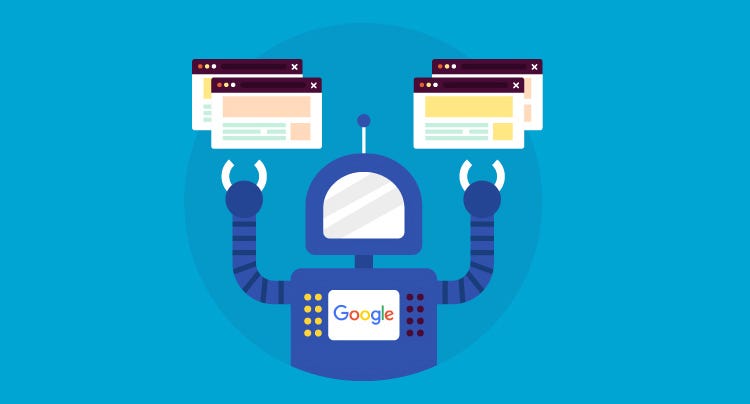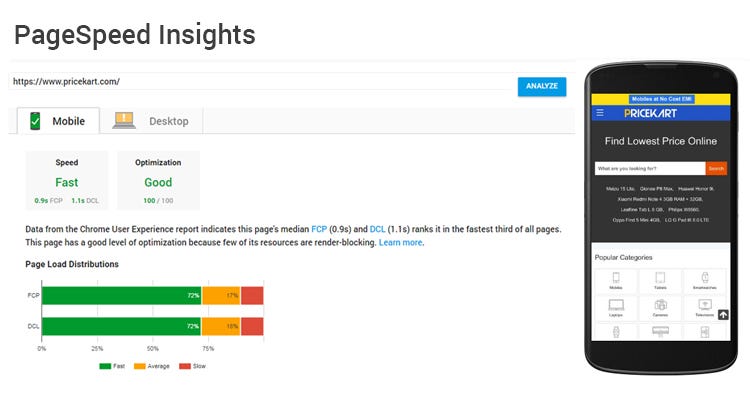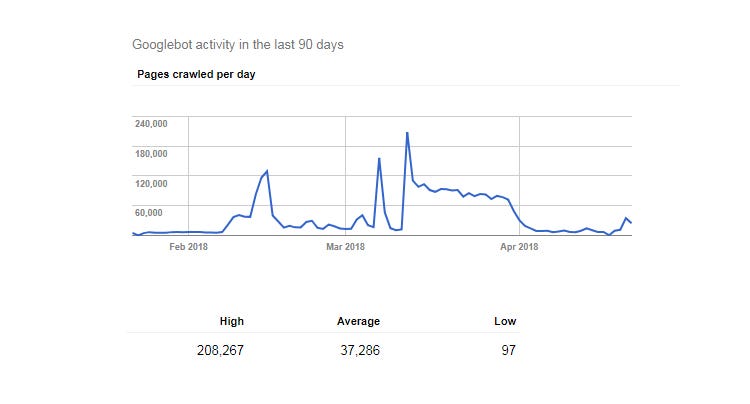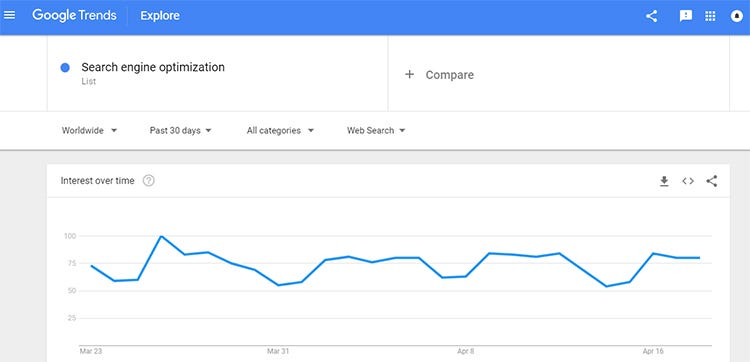Latest news about Bitcoin and all cryptocurrencies. Your daily crypto news habit.
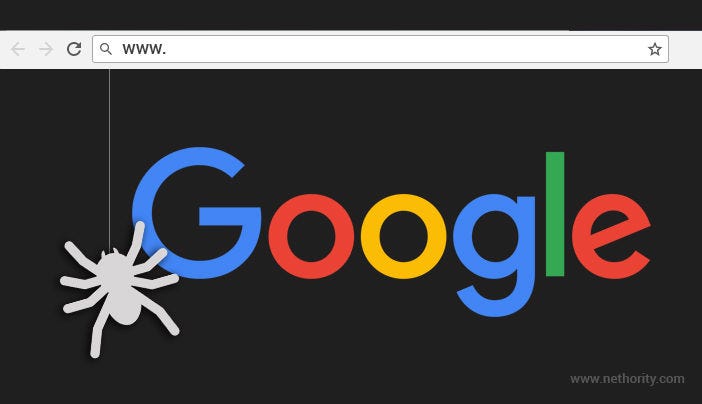
Nowadays, SEO is not all about optimizing content for right keywords and getting backlinks to your website. SEO factors are changing every year and thus, you have to put more efforts to rank #1. SEO is a vast concept and it’s better to stay updated with every new terminology that endures in SEO world.
You might have heard webmasters talking about Crawl Budget and Googlebot.
Wondering what is Crawl Budget?
Does crawl budget have anything to do with my website ranking?
Let’s dive in to update SEO knowledge.
What is crawling in SEO?
Google sends its bots called Googlebot or Google’s Spiders (probably not as scary as real spiders) to crawl your web pages and index the words and content within. Once the crawling is done, these results are put into Google’s index. Thus, it is important that Google should easily find all your Web pages. Hence, to make all URLs easily found by Googlebot, sitemap is a must.
If your site has few hundred of URLs then the search engine will crawl your website easily. But, if you have a website with thousands of pages and many new URLs are auto-generated every day then Google might not crawl all of these pages. Thus, prioritizing what to crawl, when to crawl and how much to crawl becomes important.
Now comes the crawl rate and crawl budget into the picture.
Don’t worry — it’s not difficult to understand this concept.
What is crawl budget?
Crawl budget is derived from two very important factors: Crawl Rate and Crawl Demand. Considering the crawl rate and crawl demand of your website, we can define the crawl budget as ‘the number of web pages or URLs Googlebot can or want to crawl from your website’.
Crawl Rate Limit:
Crawl Rate limit is introduced so that Google should not crawl too many pages too fast from your website leaving your server exhausted. Crawl Rate limit stops Google from making too many requests as it may result in slowing down your website’s speed.
Crawl rate may spike up or drip down depending on:
- Your site’s speed: If your site speed is slow or server response time is low then crawl rate limit drops and Googlebot crawl only a few of your pages. If your site is responding quickly then crawling rate may increase.
- You can set crawl rate limit in search console. However, setting high limit doesn’t guarantee high crawl rate.
Crawl Demand:
If the demand for indexing your web pages is low then Googlebot will avoid crawling your pages. Google says that popular and updated content has higher crawl rate demand. Crawl demand depends on the popularity of your web pages as well as the freshness and originality of your content.
Thus, your website’s Crawl Budget is defined as the number of URLs Googlebot can or want to crawl depending on your website’s crawl rate limit and crawl demand mutually.
Got it? Great!
But the bottom line is, you want Google to crawl all your web pages and you want that Googlebot should keep revisiting your website for new pages. Obviously, you don’t want to miss out the traffic on pages which are not crawled by Googlebot.
So, let’s see what factors can affect crawl budget.
- Pages that add low or zero value will decrease your crawl budget. Thus, make sure you remove all low-value-add URLs.
- Outdated content is not preferable. Update your website time to time giving new fresh content to your users.
- Duplicate content can ruin your website. Come up with original content.
- Duplicate Meta and Title Tags can cause disasters. Remember, it’s better to have no Meta and Title Tags then to have duplicate ones.
- Nobody likes a slow loading website. Optimize your website speed for both mobile and desktop views. Here’s where you can check your website’s speed: Pagespeed Insights.
- User comes first. Always do it for your users and not for Google. Fulfill your users’ demands rather than impressing Google by doing unwanted optimizations.
Here is a snapshot showing PageSpeed Insights for a price comparison website called Pricekart.com
Now is the time to answer some of the questions that may be rising in your minds.
1) How to increase crawl budget?
You can increase your crawl budget by:
- Giving fresh and original content to users.
- Making sure that your page response time is quick.
- Avoiding Infinite spaces and proxies in web pages.
- Making sure that every URLs in your website should add value to your user. Here’s where you can get your website audited for technical errors that are preventing your website from ranking high: Get SEO Audit Report.
2) How to check crawl budget?
You can use the free tool given by Google itself, Google Search Console. You can easily check your crawl stats here. Also, you can check server errors and crawl errors and optimize your site to increase your crawl budget.
Here’s a snapshot from Google Search Console showing crawl variations over a period of 90 days.
3) How will crawl budget affect your website ranking?
Obviously, if many of your web pages aren’t getting crawled, you’ll never see traffic on those pages. Low crawl budget can lead to low ranking as many of your pages will never rank in Google. Thus, you need to make sure that all your important pages must be crawled by Google.
Note: High crawl budget doesn’t guarantee high rankings. It’s all about quality and demand. To increase your website ranking you can opt for our Profession SEO Packages. We are best in the market to provide you all the SEO help you need.
4) How to check crawl demand?
When a topic or a search query becomes popular and frequently searched by users in Google search box, the popularity of web pages giving information related to it also increases. Thus, we can say that demand has increased and Googlebot are out now to index more and more pages which can be displayed as SERP but making sure that user experience is not degraded. You can check what is trending by using Google Trends and try to make your content revolve around what is trending in Google World.
Here’s a snapshot showing Google Trend stats for keyword ‘search engine optimization’.
Verdict:
Crawl budget is an important factor to be considered while doing SEO for websites.
Very low crawl budget means Google doesn’t like your web pages much.
Very high crawl budget doesn’t guarantee high ranking. Also, you don’t want very high crawling as that might overload your server.
You can’t increase or decrease your website’s crawl budget by simple setting some limits. However, you can make your site capable enough to have a sufficient crawl budget by taking care of factors like good unique content, updated information and high page speed.
What Is Crawl Budget And How It Will Affect Your Website Ranking? was originally published in Hacker Noon on Medium, where people are continuing the conversation by highlighting and responding to this story.
Disclaimer
The views and opinions expressed in this article are solely those of the authors and do not reflect the views of Bitcoin Insider. Every investment and trading move involves risk - this is especially true for cryptocurrencies given their volatility. We strongly advise our readers to conduct their own research when making a decision.
